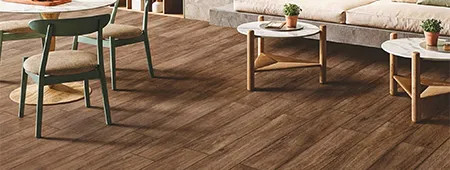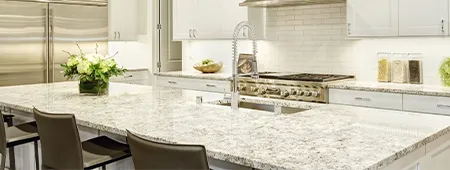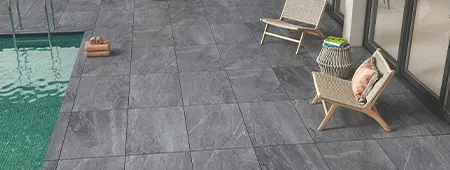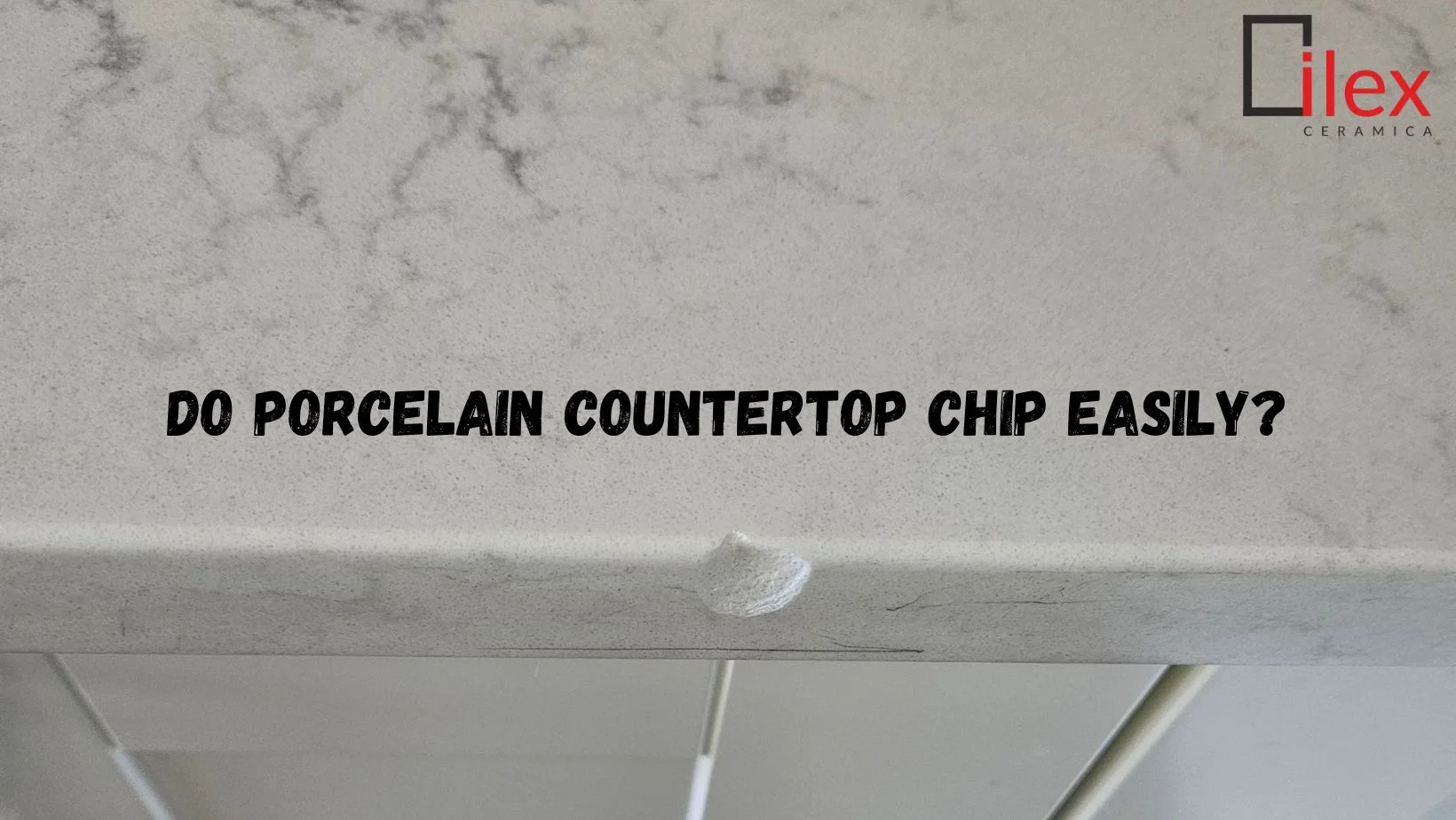02 January, 2025
More Homeowners and designers are choosing Porcelain countertops because of the modern outlook, toughness, and versatility of its designs. However, people are very conscious of the possibility of chipping and general deterioration in the long run. If you’re considering porcelain countertops for your kitchen or bathroom, you might be wondering: Porcelain countertops can chip easily? Now let’s explore how several aspects influence porcelain sturdiness and how you can sustain such beautiful and elegant surfaces for years.
1. Understanding Porcelain Countertops: What Are They Made Of?
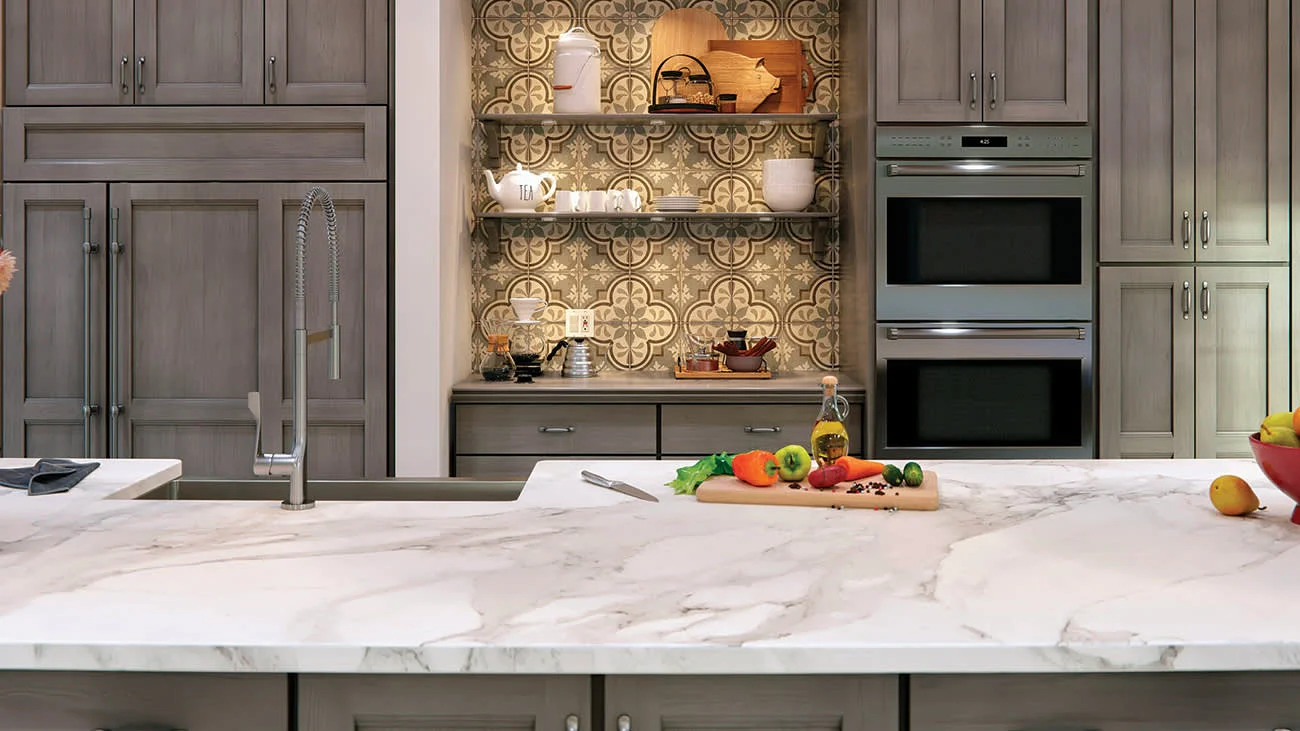
Porcelain countertops are made from a ceramic material, which is very compressed and impervious, and manufactured mainly from clay, mineral, and quartz. This composition makes porcelain very hard and very resistant to stain, bacterium and heat. Countertops are processed through firing the material at very high temperatures which make the final product to be hard surface and very strong. Most porcelain surfaces are produced to resemble marble or granite, providing the beauty of expensive minerals while holding other disadvantages of these materials.
2. The Durability of Porcelain: Does It Chip Easily?
Porcelain countertops are well praised for their durability that is very hard to achieve with other ordinary countertops. They are very easy to damage in few ways such as scratching, staining and burning. However, like other materials, porcelain has several constraints. Whether or not porcelain chips easily depends on several factors:
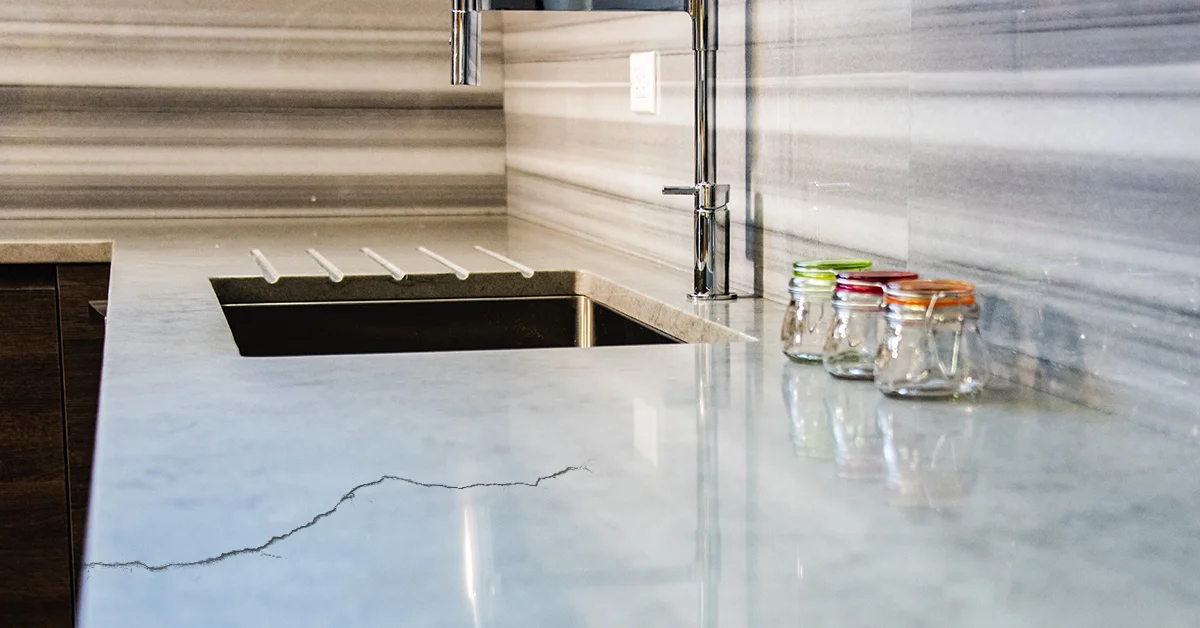
a) Porcelain’s Hardness
Porcelain is thought to be among the hardest surfaces for countertops. The material has a Mohs hardness of 7, which makes it harder than granite with a Mohs hardness of 6 while it is as hard as quartz. This means that porcelain is more spine and will not chip when used under normal conditions such as chopping vegetables, placing hot pots and so on.
b) Impact Force
But still, porcelain can be very vulnerable to chips especially where there is a lot of pressure or impact. If pots and pans are dropped or sharp objects such as knives are slid across the porcelain this can cause the porcelain to chip, particularly along a side or a corner. Nevertheless, for ordinary mortal application, porcelain surfaces are relatively tough and not easily damaged through impact.
c) Edge Treatment and Installation
Porcelain is more susceptible to chipping around the exterior parts of the countertop as compared to the interior part. In some cases they were rough and uneven despite efforts at rounding the edges or treating them and the slightest forceful blow could this cause the edges to chip or crack. This is why it is necessary to select a good contractor who will guarantee that the edges of your porcelain countertop are well polished and sealed.
3. Factors that Affect Porcelain’s Susceptibility to Chipping
While porcelain is a durable material, certain conditions and usage patterns can increase the risk of chipping. Let’s explore the most common factors:
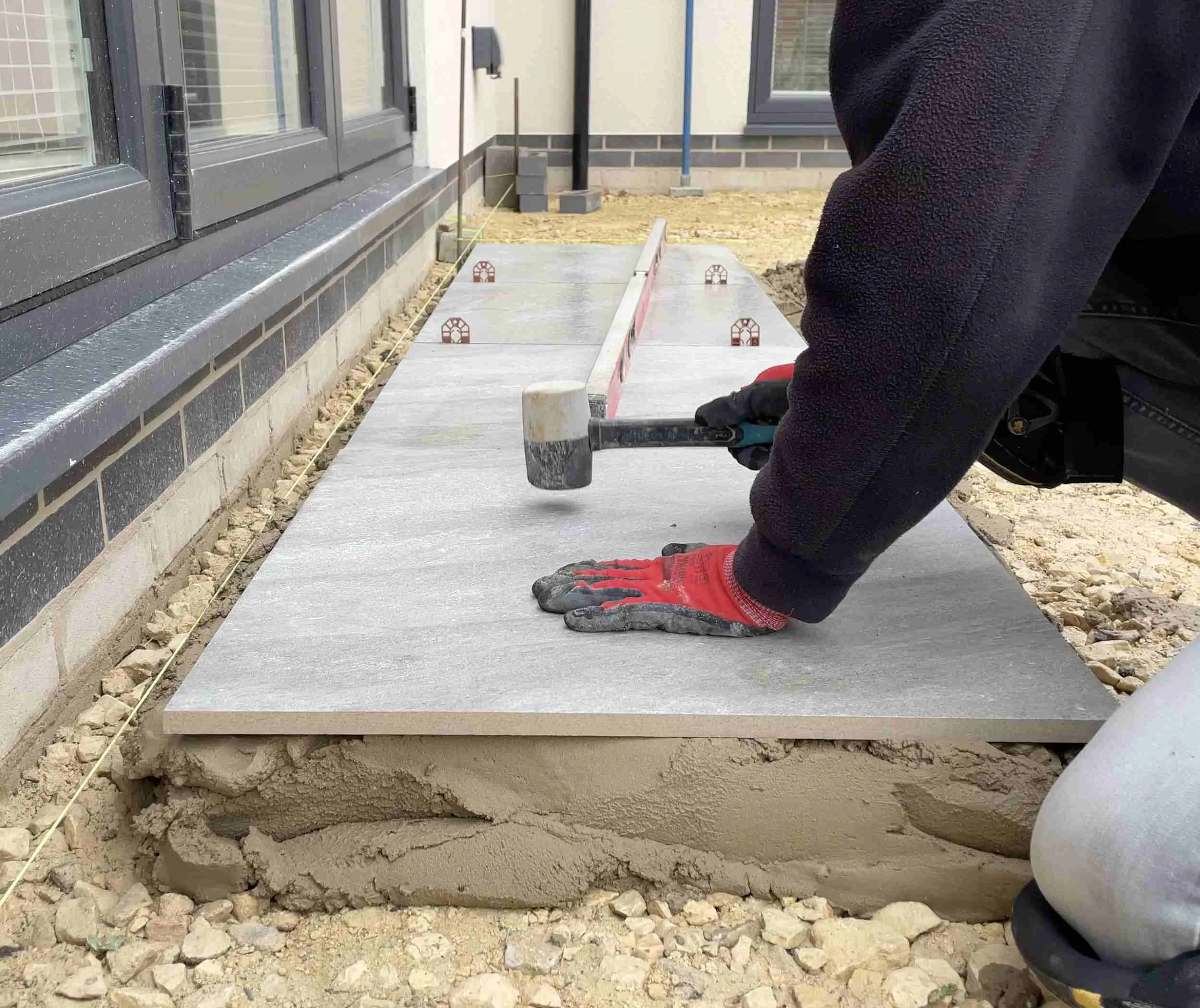
a) Quality of the Porcelain
To be more precise, not all varieties of porcelain are identical in properties. There are poor-quality porcelain countertops that have a likelihood of chipping since they are made from different material from the high-end ones. When purchasing porcelain countertops check thoroughly for the best tile company that offer the best quality porcelain counters that meet industry standards.
b) Temperature Extremes
While it is worth learning that porcelain is a material that does not burn easily, it is better not to put very hot or stunned appliances directly onto the porcelain surface. It is also sensitive to changes in temperature and when temperatures fluctuate many times within a short time it will start to expand and crack and could chip easily. Heat pads, trivets or cutting boards should always be used to prevent the surface from contact with extremities of temperature.
c) Regular Maintenance
Porcelain countertop requires some measures to be taken so as to ensure they are maintained in the right manner. It is recommended to periodically wash the same with a mild detergent only and not use any rough sponges that would mar the surface. Porcelain is effectively stain repellent but there are always areas such as junctions with other fixtures where grease or grime accumulates and if this pressure is applied over time to the surface, it is likely to fracture or chip.
4. How to Prevent Chipping of Porcelain Countertops
Though porcelain countertops are durable, taking proactive steps can help prevent chipping and maintain their pristine condition. Here are some tips:
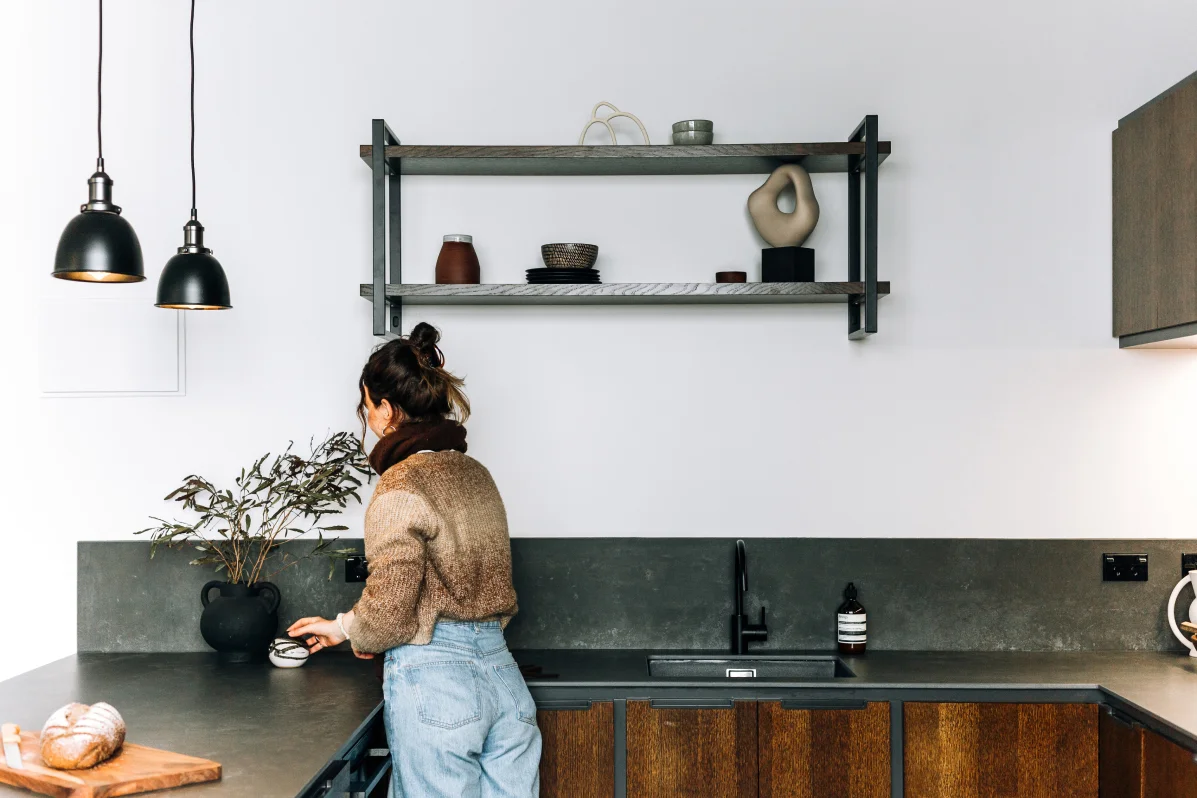
a) Install Edge Protectors
Porcelain is somewhat brittle so is inclined to chips; therefore, it will be advisable to have rounded or bullnose edges on your kitchen countertop. Objects with sharp square corners are more likely to get damaged when knocked or dropped. The round edges compliment the countertop by also adding a more elegant touch.
b) Use Cutting Boards and Trivets
This is because any force that is applied directly on the exterior allures will in one way or the other have a close touch to the porcelain surface and therefore such motions should be done using cutting boards and trivets in the presence of knives, hot pots or dishes respectively. Besides reducing chipping chances, it also shields the countertop from scratching and staining.
c) Avoid Dropping Heavy Objects
Of course, it is a general rule that people are not perfect and have accidents – dropping a heavy object on your newly installed porcelain countertop can lead to cracks or chipping. Further, be careful to avoid loading the counter with very objects especially at the edges. If even a massive object lands on the surface, the repulsion can lead to cracks or even chips.
d) Regular Sealing and Maintenance
They prefer not to seal porcelain as it is a non-porous material like granite but there is a need to always clean it. This should be done often to eliminate any chance of having substances that may cause staining accumulate on the surface. Avoid using aggressive chemicals which may damage the finish or cause microscopic scratch marks on the surface.
5. Repairing Chips and Cracks in Porcelain Countertops
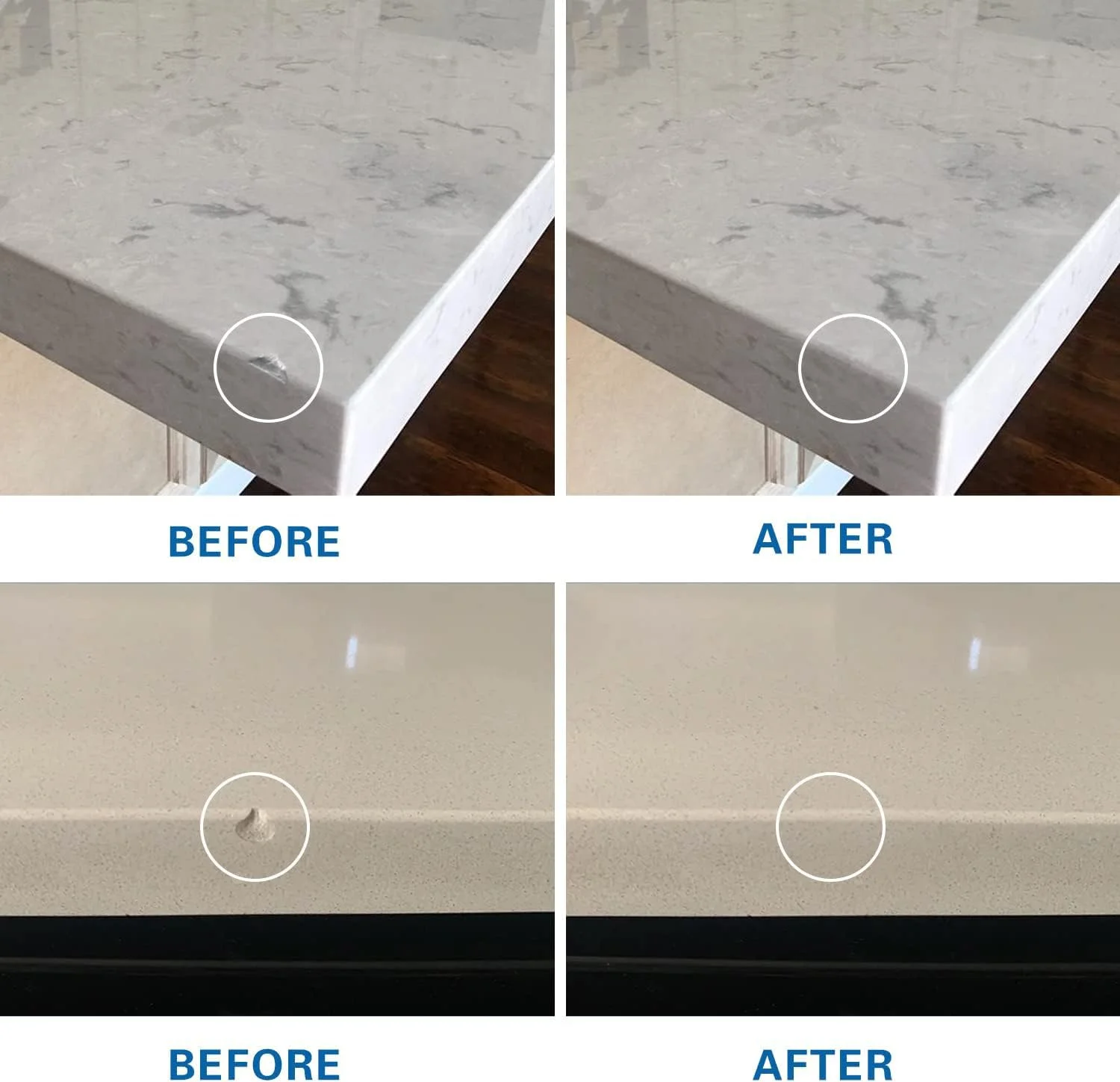
That said if you do find yourself stuck with a chip or a crack on the porcelain countertop don’t be dismayed. Porcelain is very hard to repair immaculately but damages such as chips can be worked on and fixed. Seeing that most professional repair services are proficient in this area, they used specialized porcelain fillers to fill out the small chips. If the crack size is too big, it is always advisable to replace the section or the whole countertop since a large crack weakens the structural surface of the slab.
6. Why Choose Porcelain Countertops?
Despite concerns about potential chipping, porcelain countertops offer a variety of advantages that make them a top choice for homeowners:
• Aesthetic Flexibility: Porcelain comes in a variety of colors, patterns and texture and it can be easily adapted to most architectural and design themes.
• Heat and Scratch Resistance: Porcelain countertops are heat, stain and scratch resistant ideal for use in the kitchen.
• Low Maintenance: Since their surfaces are not porous , it hardly takes much effort to clean and maintain them to the highest standard.
• Eco-Friendly: This material is derived from a natural source and therefore it can be a good choice for green buildings.
Conclusion
Porcelain countertops are modern, resistant and can become an essential part of any household. Although they are not resistant to chipping, with these surfaces appropriately maintained, then chances of chipping decreases. Knowing what makes porcelain prone to chipping, choosing the right materials for your counters, and following some basic care guidelines will help you keep your porcelain kitchen countertops in great shape for as long as you own your home.
So, if you’re wondering whether porcelain chips easily, the answer is: proper maintenance is offered to them, then they make a durable option as a flooring solution for your kitchen or bathroom. Anyone in search of a beautiful and long lasting surface that doesn’t need much in the form of upkeep, porcelain might just be the answer.

